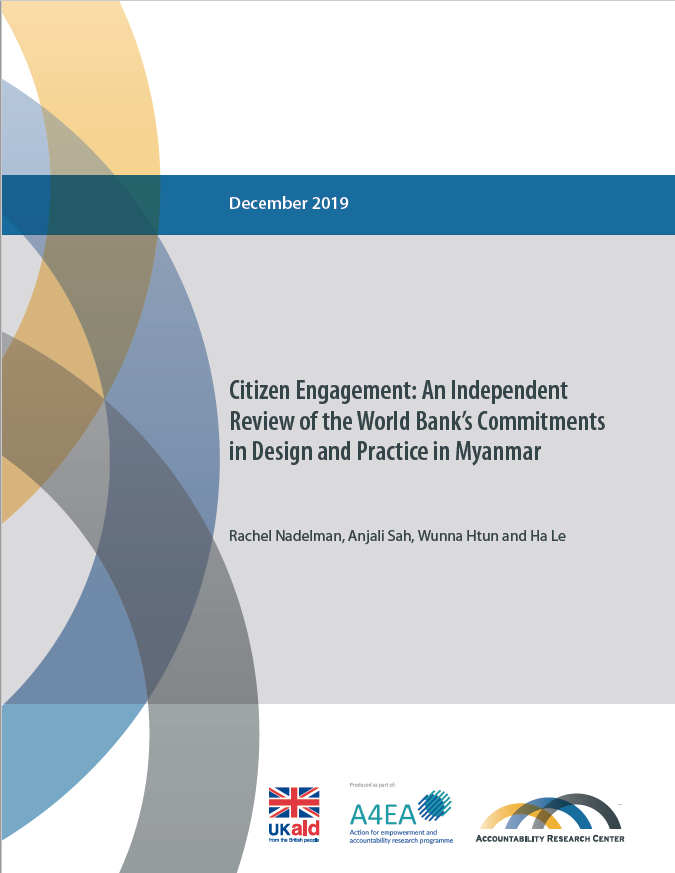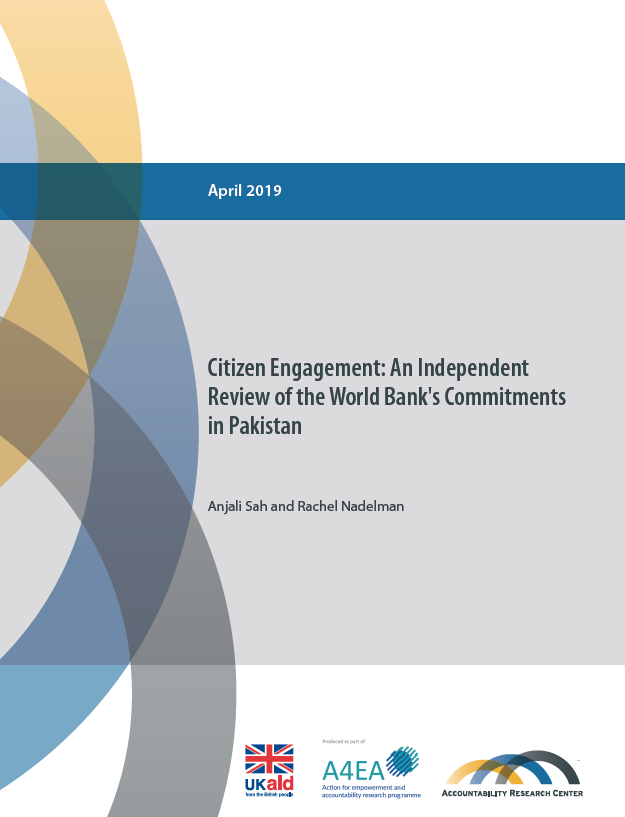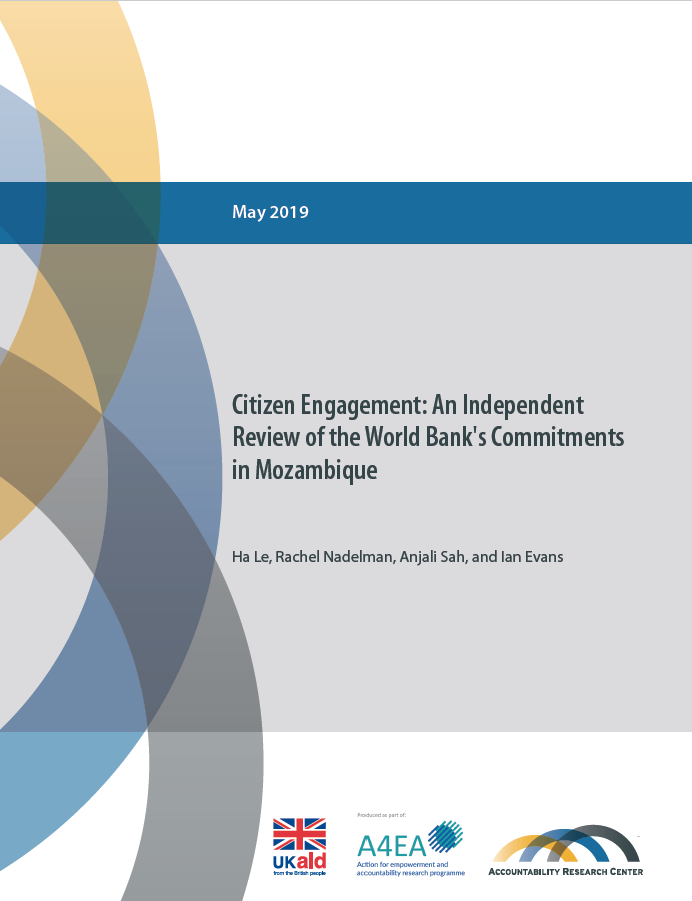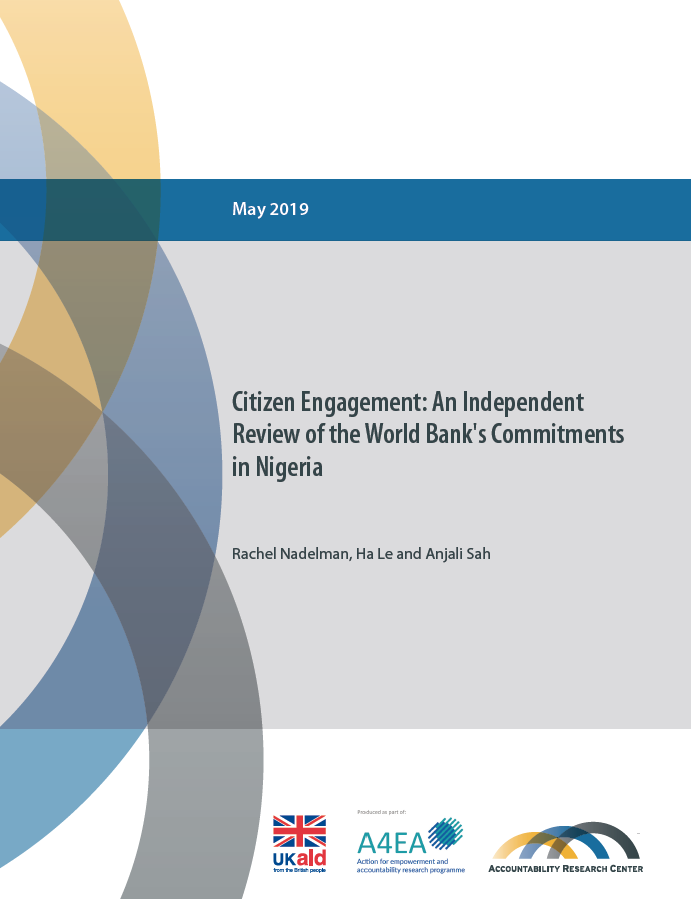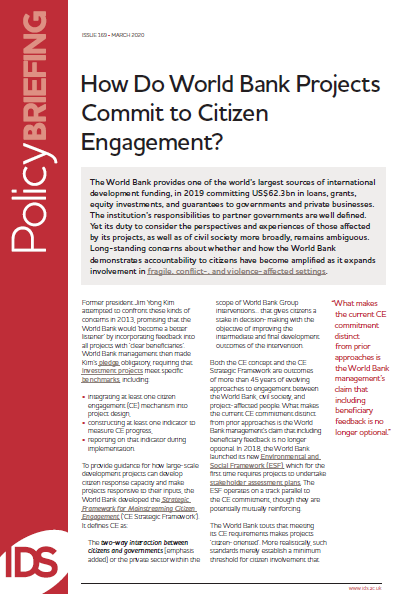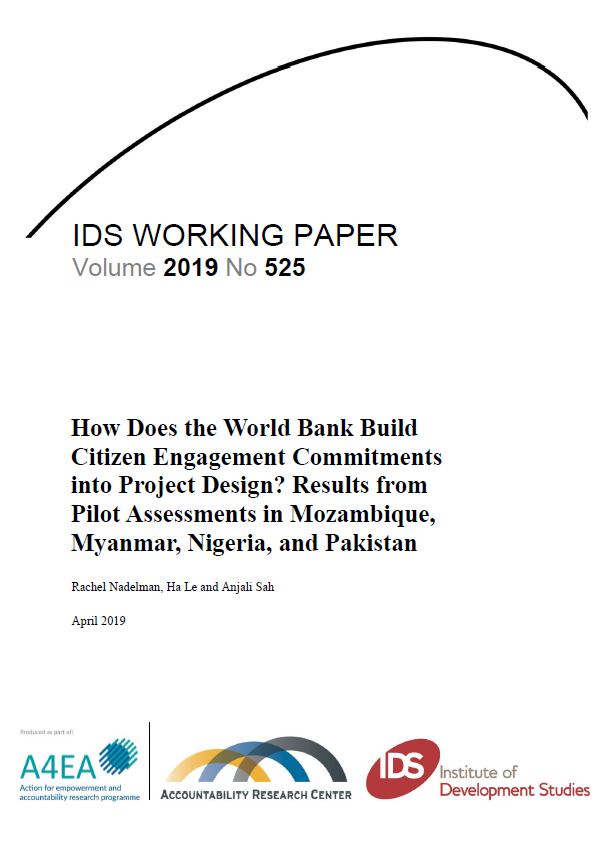
How Does the World Bank Build Citizen Engagement Commitments into Project Design? Results from Pilot Assessments in Mozambique, Myanmar, Nigeria, and Pakistan
Date: April 2019
Author(s): Rachel Nadelman, Ha Le and Anjali Sah
Publication type: Working Paper
Published by: Institute of Development Studies
How and to what degree is the World Bank putting its new institutional citizen engagement (CE) commitments into practice? This question guides an independent assessment that the Accountability Research Center (ARC) at American University has undertaken as part of the Institute of Development Studies (IDS)-led Action for Empowerment and Accountability (A4EA) research programme’s investigation into how external actors can best support local processes of and conditions for empowerment and accountability. This report investigates the World Bank’s incorporation of CE into project design, the critical early stage of donor engagement. To accomplish this, ARC reviewed the World Bank’s fiscal year 2015–17 investment project portfolios for four A4EA priority countries, Mozambique, Myanmar, Nigeria, and Pakistan, which covers 57 projects that range from US$19 million to US$600 million. The analysis determines whether projects commit to seeking a strategic approach to CE, which involves combining multiple tactics so that the whole could be greater than the sum of the parts. This assessment of CE commitments is intended to help to inform possible national, civil society organisation strategies to monitor whether and how these commitments are actually implemented in practice. See the resources tab for more in depth case study reports on specific countries.
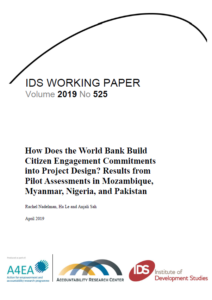
Rachel Nadelman is a Scholar-in-Residence and Research Fellow at the Accountability Research Center at American University. She has worked in international development for 15 years with a range of organisations including the World Bank, the German Development Agency (GIZ), American Jewish World Service, and the Institute of Development Studies. She has specialised in social development, primarily on issues related to social inclusion, women’s social and economic empowerment, and the intersection of environment and sustainable development. Rachel has a BA from Brown University, an MA in International Affairs from The New School and a PhD in International Relations from the School of International Service at American University. Ha Le is a researcher at the Accountability Research Center at American University. She has hands-on experience in anti-corruption, transparency and journalism with in-depth understanding of governance issues in Vietnam. Previously she worked in Vietnam with Transparency International’s National Contact and supported the implementation of the Provincial Governance and Public Administration Performance Index, managed by UNDP Vietnam. Her work and research also focus on water governance in Southeast Asia. Ha has a background in international finance and earned her master’s degree in International and Intercultural Communication, with a concentration on Development and Environmental Policy, from American University. Anjali Sah is a researcher at the Accountability Research Center at American University, focusing on citizen engagement, civic participation, social accountability and transparency in World Bank-financed operations. She holds a master’s degree in International Development from American University, with a concentration on Social Development and Development Management. Additionally, her professional experience in India spans more than a decade in the fields of gender, socioeconomic and community development, managing socially responsible businesses and thereafter as a social entrepreneur providing rural livelihoods to women and marginalised artisan groups.

